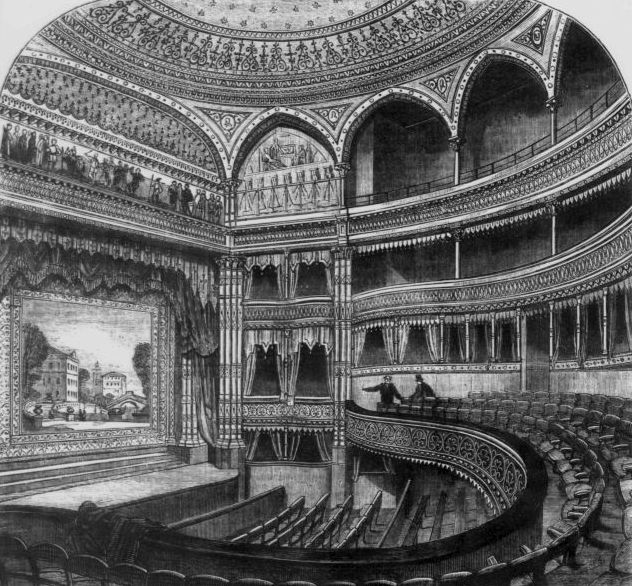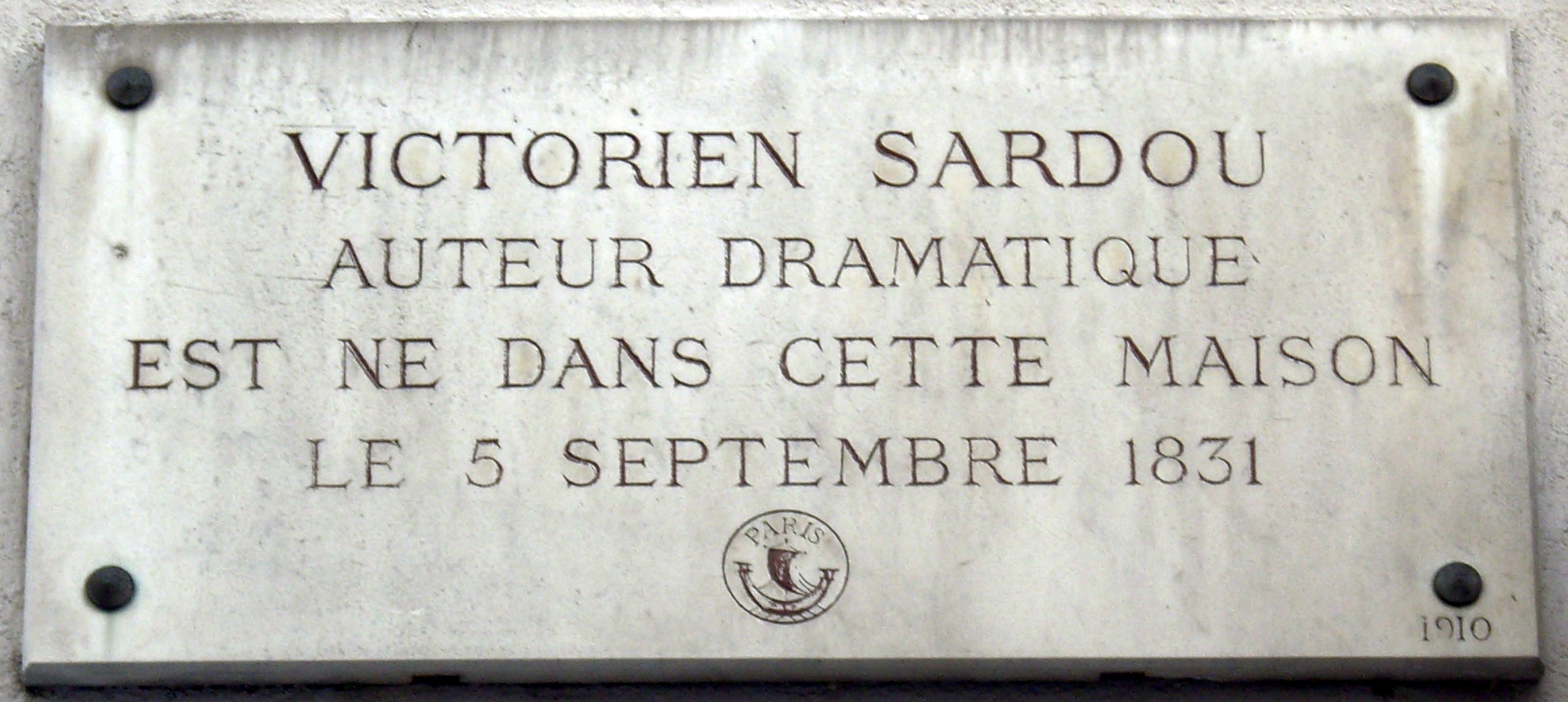|
Julia Gwynne
Julia Gwynne (1856 – 10 June 1934) was an English opera singer and actress best remembered for her performances with the D'Oyly Carte Opera Company from 1879 to 1883. She married producer George Edwardes. Life and career Gwynne was born Julia Lavinia Putney at Marylebone, London, England in 1856 to David Putney and his wife, who owned the 'Black Boy' public house in Hampstead.Hyman, Alan ''The Gaiety Years'', Cassell London (1975) Early career George Edwardes, later Gwynne's husband, was a manager for Richard D'Oyly Carte at the Opera Comique and later Carte's managing director of the Savoy Theatre. He brought Gwynne with him in 1879 to join the chorus in D'Oyly Carte's company in Gilbert and Sullivan's hit opera ''H.M.S. Pinafore''. Gwynne's sister, actress Emma Gwynne (born Emma Putney), also sang in ''Iolanthe'' with Gwynn. During ''Pinafore'', Gwynne was called before the stage manager, Richard Barker, for laughing on stage during a performance. Despite her protest ... [...More Info...] [...Related Items...] OR: [Wikipedia] [Google] [Baidu] |
Jessie Bond
Jessie Charlotte Bond (10 January 1853 – 17 June 1942) was an English singer and actress best known for creating the mezzo-soprano soubrette roles in the Gilbert and Sullivan comic operas. She spent twenty years on the stage, the bulk of them with the D'Oyly Carte Opera Company. Musical from an early age, Bond began a concert singing career in Liverpool by 1870. At the age of 17, she entered into a brief, unhappy marriage. After leaving her abusive husband, she continued her concert career and studied at the Royal Academy of Music in London with such famous singing teachers as Manuel García. At the age of 25, in 1878, Bond began her theatrical career, creating the role of Cousin Hebe in Gilbert and Sullivan's ''H.M.S. Pinafore'', which became an international success. After this, she created roles of increasing importance with the D'Oyly Carte Opera Company in a series of successful comic operas, including the title role in ''Iolanthe'' (1882), Pitti Sing in ''The Mikad ... [...More Info...] [...Related Items...] OR: [Wikipedia] [Google] [Baidu] |
Gaiety Theatre, London
The Gaiety Theatre was a West End theatre in London, located on Aldwych at the eastern end of the Strand. The theatre was first established as the Strand Musick Hall in 1864 on the former site of the Lyceum Theatre. In 1868, it became known as the Gaiety Theatre and was, at first, known for music hall and then for musical burlesque, pantomime and operetta performances. From 1868 to the 1890s, it had a major influence on the development of modern musical comedy. Under the management of John Hollingshead until 1886, the theatre had early success with ''Robert the Devil'', by W. S. Gilbert, followed by many other burlesques of operas and literary works. Many of the productions starred Nellie Farren. Hollingshead's last production at the theatre was the burlesque '' Little Jack Sheppard'' (1885–86), produced together with his successor, George Edwardes. Edwardes's first show, '' Dorothy'', became a long-running hit. In the 1880s and 90s, the theatre had further succes ... [...More Info...] [...Related Items...] OR: [Wikipedia] [Google] [Baidu] |
Impresario
An impresario (from the Italian ''impresa'', "an enterprise or undertaking") is a person who organizes and often finances concerts, plays, or operas, performing a role in stage arts that is similar to that of a film or television producer. History The term originated in the social and economic world of Italian opera, in which from the mid-18th century to the 1830s, the impresario was the key figure in the organization of a lyric season. The owners of the theatre, usually amateurs from the nobility, charged the impresario with hiring a composer (until the 1850s operas were expected to be new) and the orchestra, singers, costumes and sets, all while assuming considerable financial risk. In 1786 Wolfgang Amadeus Mozart satirized the stress and emotional mayhem in a single-act farce ''Der Schauspieldirektor'' (''The Impresario''). Antonio Vivaldi was unusual in acting as both impresario and composer; in 1714 he managed seasons at Teatro San Angelo in Venice, where his opera '' ... [...More Info...] [...Related Items...] OR: [Wikipedia] [Google] [Baidu] |
Roman Catholic
Roman or Romans most often refers to: *Rome, the capital city of Italy *Ancient Rome, Roman civilization from 8th century BC to 5th century AD *Roman people, the people of ancient Rome *''Epistle to the Romans'', shortened to ''Romans'', a letter in the New Testament of the Christian Bible Roman or Romans may also refer to: Arts and entertainment Music *Romans (band), a Japanese pop group * ''Roman'' (album), by Sound Horizon, 2006 * ''Roman'' (EP), by Teen Top, 2011 *"Roman (My Dear Boy)", a 2004 single by Morning Musume Film and television *Film Roman, an American animation studio * ''Roman'' (film), a 2006 American suspense-horror film * ''Romans'' (2013 film), an Indian Malayalam comedy film * ''Romans'' (2017 film), a British drama film * ''The Romans'' (''Doctor Who''), a serial in British TV series People * Roman (given name), a given name, including a list of people and fictional characters * Roman (surname), including a list of people named Roman or Romans *Ῥωμα� ... [...More Info...] [...Related Items...] OR: [Wikipedia] [Google] [Baidu] |
Protestant
Protestantism is a Christian denomination, branch of Christianity that follows the theological tenets of the Reformation, Protestant Reformation, a movement that began seeking to reform the Catholic Church from within in the 16th century against what its followers perceived to be growing Criticism of the Catholic Church, errors, abuses, and discrepancies within it. Protestantism emphasizes the Christian believer's justification by God in faith alone (') rather than by a combination of faith with good works as in Catholicism; the teaching that Salvation in Christianity, salvation comes by Grace in Christianity, divine grace or "unmerited favor" only ('); the Universal priesthood, priesthood of all faithful believers in the Church; and the ''sola scriptura'' ("scripture alone") that posits the Bible as the sole infallible source of authority for Christian faith and practice. Most Protestants, with the exception of Anglo-Papalism, reject the Catholic doctrine of papal supremacy, ... [...More Info...] [...Related Items...] OR: [Wikipedia] [Google] [Baidu] |
Haymarket Theatre
The Theatre Royal Haymarket (also known as Haymarket Theatre or the Little Theatre) is a West End theatre on Haymarket in the City of Westminster which dates back to 1720, making it the third-oldest London playhouse still in use. Samuel Foote acquired the lease in 1747, and in 1766 he gained a royal patent to play legitimate drama (meaning spoken drama, as opposed to opera, concerts or plays with music) in the summer months. The original building was a little further north in the same street. It has been at its current location since 1821, when it was redesigned by John Nash. It is a Grade I listed building, with a seating capacity of 888. The freehold of the theatre is owned by the Crown Estate. The Haymarket has been the site of a significant innovation in theatre. In 1873, it was the venue for the first scheduled matinée performance, establishing a custom soon followed in theatres everywhere. Its managers have included Benjamin Nottingham Webster, John Baldwin Buckst ... [...More Info...] [...Related Items...] OR: [Wikipedia] [Google] [Baidu] |
Victorien Sardou
Victorien Sardou ( , ; 5 September 18318 November 1908) was a French dramatist. He is best remembered today for his development, along with Eugène Scribe, of the well-made play. He also wrote several plays that were made into popular 19th-century operas such as ''La Tosca'' (1887) on which Giacomo Puccini's opera ''Tosca'' (1900) is based, and ''Fédora'' (1882) and ''Madame Sans-Gêne'' (1893) that provided the subjects for the lyrical dramas ''Fedora'' (1898) and ''Madame Sans-Gêne'' (1915) by Umberto Giordano. His play ''Gismonda'', from 1894, was also adapted into an opera of the same name by Henry Février. Early years Victorien Sardou was born at 16 rue Beautreillis (), Paris on 5 September 1831. The Sardous were settled at Le Cannet, a village near Cannes, where they owned an estate, planted with olive trees. A night's frost killed all the trees and the family was ruined. Victorien's father, Antoine Léandre Sardou, came to Paris in search of employment. He was in succ ... [...More Info...] [...Related Items...] OR: [Wikipedia] [Google] [Baidu] |
Herman Charles Merivale
Herman Charles Merivale MA (27 January 1839 – 17 August 1906) was an English dramatist and poet, son of Herman Merivale. He also used the punning pseudonym Felix Dale. Life Herman Charles Merivale was born in London on 27 January 1839, the only son of Herman Merivale (1806–1874), a barrister and civil servant who was permanent under-secretary of the India Office, and his wife, Caroline Penelope Robinson (d. 1881), daughter of the Revd William Villiers Robinson.Lee, Elizabeth, revised by William Baker"Merivale, Herman Charles (1839–1906)" Oxford Dictionary of National Biography, 23 September 2004, accessed 19 August 2021 Merivale was educated at Harrow School and Balliol College, Oxford, where Algernon Charles Swinburne and Charles Bowen were his contemporaries. He graduated BA in 1861. At his father's home he met many distinguished men, including Lord Robert Cecil (afterwards Prime Minister Lord Salisbury), who became a lifelong friend. His friends in literary and d ... [...More Info...] [...Related Items...] OR: [Wikipedia] [Google] [Baidu] |
Broken Hearts
''Broken Hearts'' is a blank verse play by W. S. Gilbert in three acts styled "An entirely original fairy play". It opened at the Royal Court Theatre in London on 9 December 1875, running for three months, and toured the provinces in 1876. It was revived at the Savoy Theatre in 1882 (with Gilbert playing Florian, alongside Hermann Vezin as Mousta, after an accident incapacitated the actor who was originally to have played Florian).Stedman, Jane W"General Utility: Victorian Author-Actors from Knowles to Pinero" ''Educational Theatre Journal'', Vol. 24, No. 3, October 1972, pp. 289–301, The Johns Hopkins University Press Julia Gwynne played Melthusine. It was revived again in 1883, and yet again in 1888 starring Marion Terry in February and Julia Neilson in May, and also at Crystal Palace that year. There was also a New York City production at the Madison Square Theatre. Background and analysis ''Broken Hearts'' was the last of several blank verse "fairy comedies" created ... [...More Info...] [...Related Items...] OR: [Wikipedia] [Google] [Baidu] |






